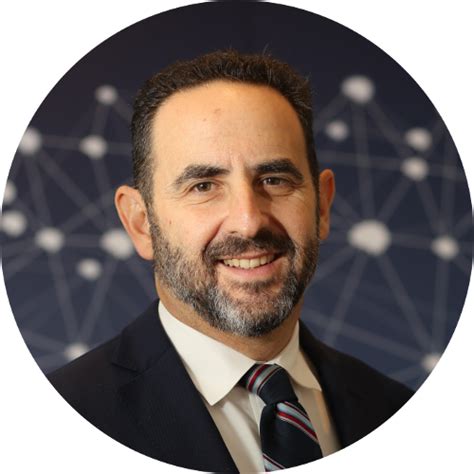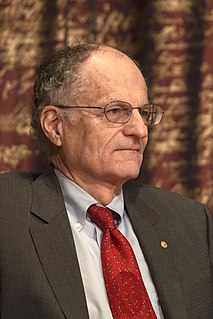A Quote by Kenneth Arrow
It seems to me that at least as far as the financial markets are concerned, there is increasing evidence against rational expectations, even at the macro level.
Related Quotes
When you look at any experimental work not directly related to economics, but trying to test rational behavior in other ways, experiments have conspicuously failed to show rational behavior. Macro evidence certainly suggests deviations from rationality, but I don't want to say the rationality hypothesis is completely wrong. If you have any introspective idea or experimental idea about people's behavior, it seems to be incompatible with the really full scale rational expectations.
I think what they've been doing is largely almost in firefighting mode without a good conceptual framework - either at the micro or the macro level. Micro, you would ask: "What kind of financial or banking system do we want?" Macro, you would say: "What are the underlying problems in the structure of our economy?"
Think about what it feels like when you interact with someone who makes you notice what's good about yourself (raising your status), who is clear with his expectations of you (increasing certainty), who lets you make decisions (increasing autonomy), who connects with you on a human level (increasing relatedness), and who treats you fairly.
From the 1990s onward, the financial sector created a vast array of instruments designed to separate investors from their money, financial derivatives of an ever-increasing level of complexity. At some point, this complexity reached a point where even the creators of the derivatives themselves didn't understand them.
Extrapolated, technology wants what life wants:
Increasing efficiency
Increasing opportunity
Increasing emergence
Increasing complexity
Increasing diversity
Increasing specialization
Increasing ubiquity
Increasing freedom
Increasing mutualism
Increasing beauty
Increasing sentience
Increasing structure
Increasing evolvability
Kevin Freeman has been warning America’s leadership of the dangers of financial terrorism for the last three years. It is happening now and Kevin provides the evidence in his book Secret Weapon. Every American needs to understand how our financial markets have been manipulated by people who want to destroy the nation and how they can do even greater damage in the future. This book is a critical read for everyone.



































